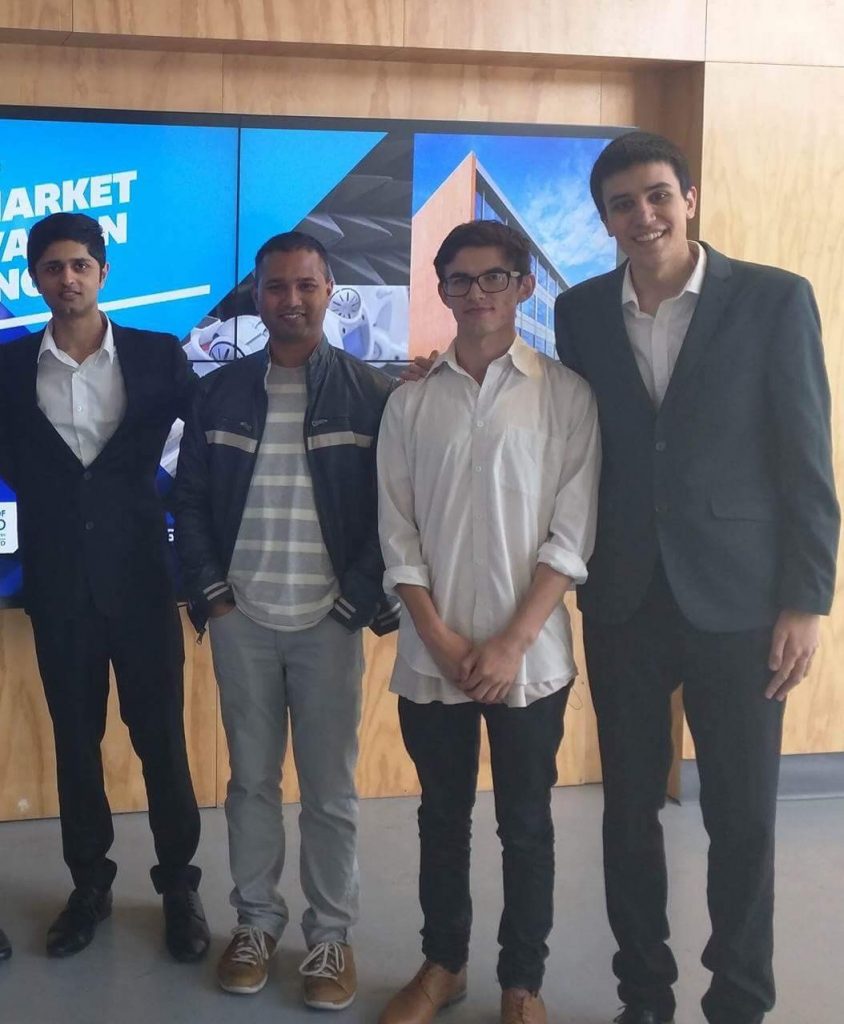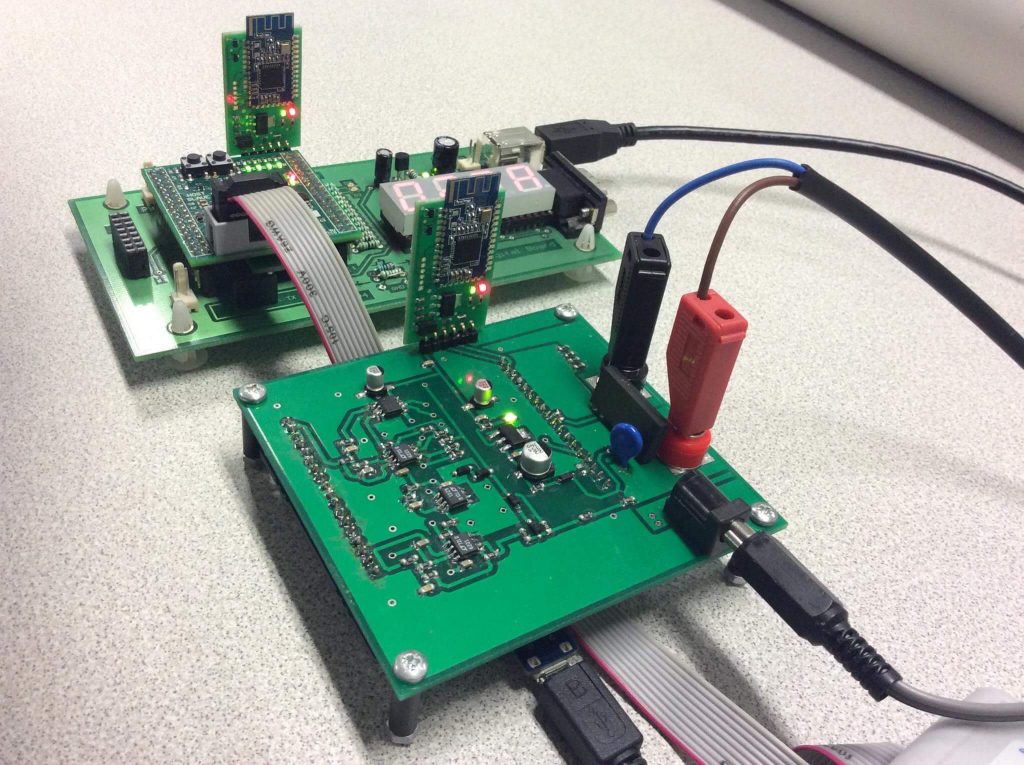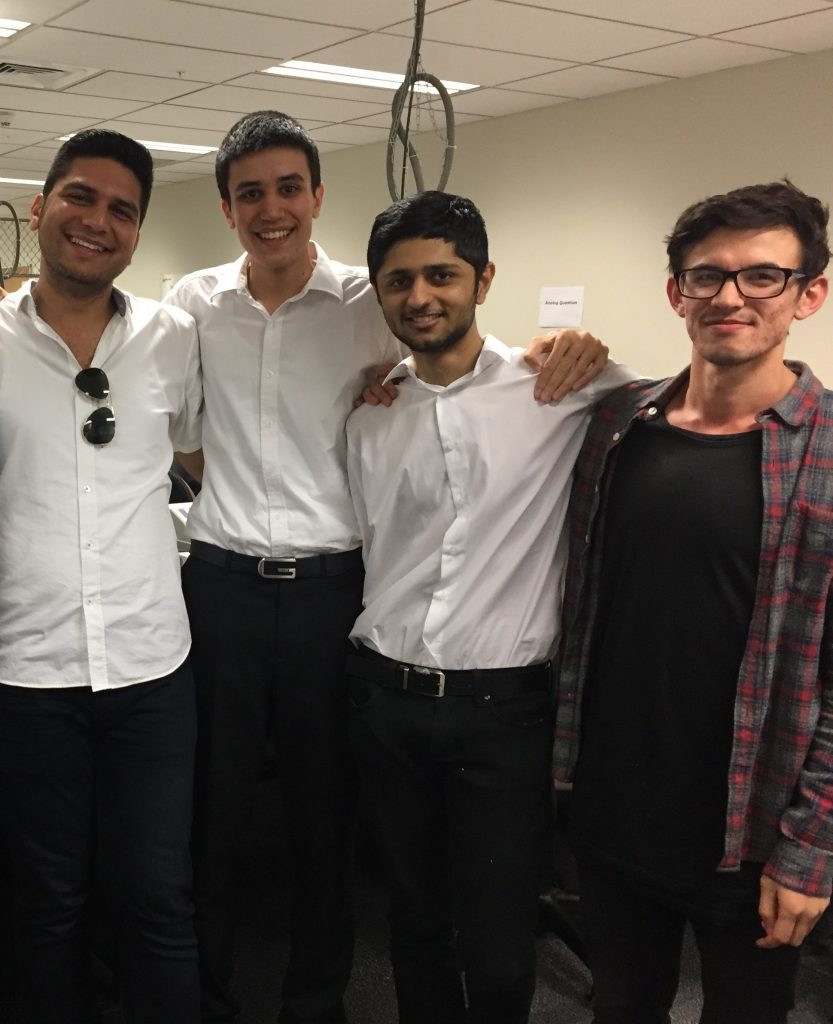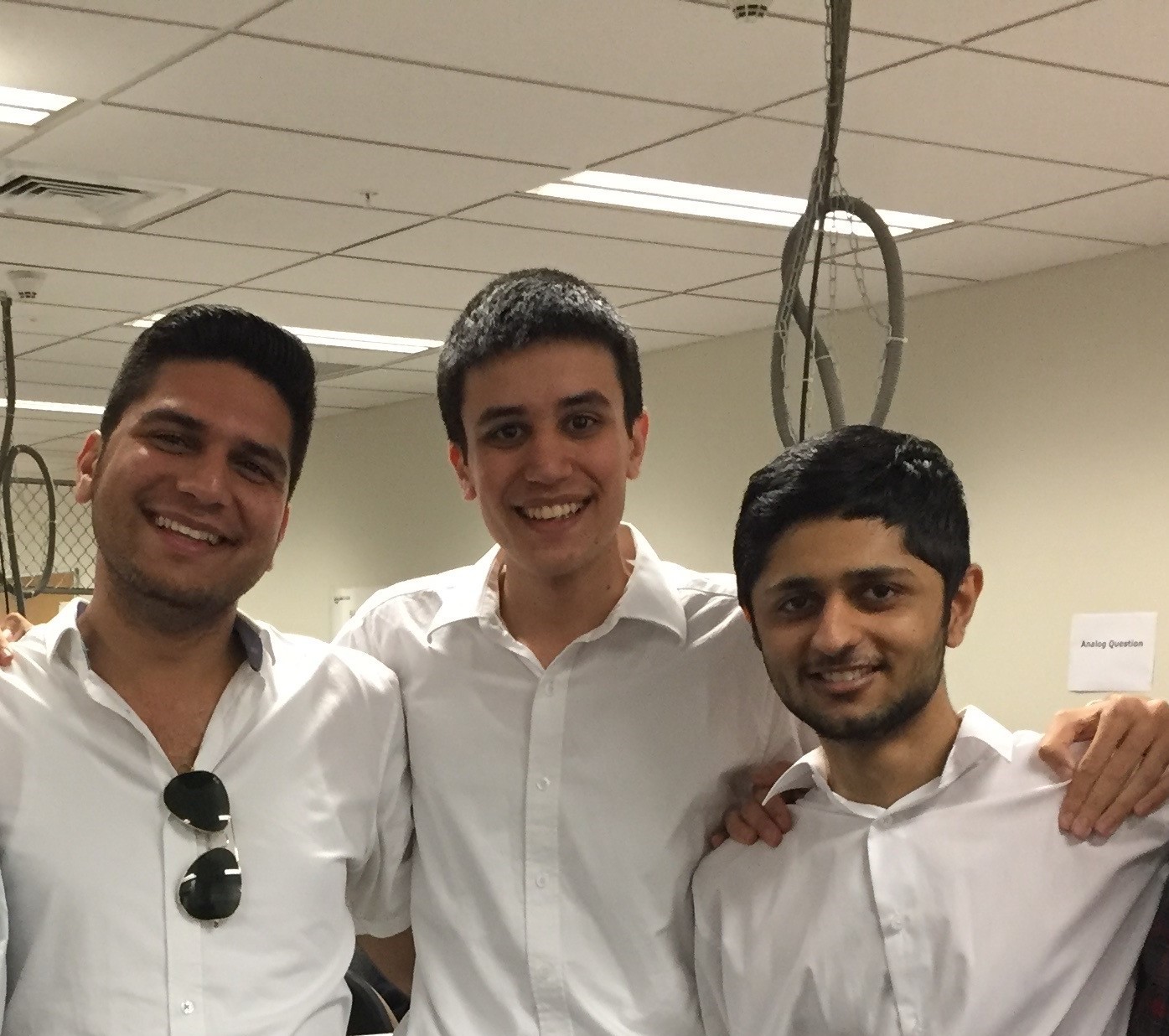Hi everyone.
Last week we sat our ELECTENG 204 final exam (worth 70% of the final grade) and Semester Two is officially over. I am so happy that I have survived this semester and by far it has been the best semester for me. When I look back at the last 4 weeks of the semester, I am amazed at how much work I have done in that amount of time and the good thing is I am happy with my performance this semester.
We made it to the top 5 groups of the project
For ELECTENG 209, we came in the Top Five Groups of the project and therefore we participated in the 2017 Smart Energy Challenge. We managed to successfully complete all the three tasks of the Smart Energy Challenge (even though only two of them were required) and our design was very accurate. These are all fabulous achievements but we kind of expected to make it to the top 5 groups considering the amount of time we spent on this project. It was 15 weeks of extremely hard work and in the last 3-4 weeks my group members and I spent around 60 hours a week on the project.

Time Management
We loved what we were doing and that made us work for a very long time on the project, but the problem was we did not only have ELECTENG 209 to work on; we had three other papers to study for. The solution was simple, we studied for the other 3 papers in our ‘breaks’ (it’s not really a break but I guess it was a break from ELECTENG 209 project). That’s why it was by far the most challenging semester (and the best semester for me).
We do lots of coding
Electrical & Electronic Engineering is not just about circuit analysis. Believe it or not, we did more coding this semester than actual circuit analysis. The coding languages were: VHDL, Embedded C and C++. We’ll use these languages in Part III and IV (specially VHDL and Embedded C) so it’s not like coding is going to stop.
Our Papers this semester
If you have read my previous post and watched our video I’m sure you know the papers that we are doing this semester. I am just going to comment on some extra points that might be good to know about our papers this semester.
ELECTENG 209 – Analogue and Digital Design: This is the project based paper that took around 80% of my time this semester. The goal of this project is to design and implement a system to measure the voltage, current and power supplied to a load and wirelessly transmit this data to a base station to be displayed. If you love this paper, Electrical Engineering is for you and you have chosen the right degree.
Here is some advice from me on how to do well in this paper:
- You need to dedicate time on the project. There is absolutely no way to complete the project if you do not work consistently during the semester. If you feel like you are spending more time in UG Labs than anywhere else, you are on the right track.
- Make full use of the lecturers, TAs and the supporting lab sessions. Most of your learning happens inside the labs. The lecturers and TAs are there to help you and if you are not present in the labs, you obviously cannot get much help from them. This quote from Duleepa explains it well: “By the end of the semester, we should be able to call you by your first name. If not, you’re probably not doing well in this course.”
- This project is challenging since it is your first real world engineering design project. Set expectations with your teammates at the start and stick to them. Also, try not to fall behind on other papers since this project will take most of your time.

ELECTENG 204 – Engineering Electromagnetics: The only paper that we have a final exam for this semester. The topics covered in this paper, is absolutely necessary for Electrical Engineers to know. Topics covered in this paper are: Transmission Lines, Electrostatics, Magnetostatics, Electromagnetic Induction, Magnetic Circuits, Single Phase Transformer, Three Phase Induction Machines and Electrical Safety.
COMPSYS 202 – Object Orientated Design and Programming: This paper is divided into two parts:
- Object Oriented Design and Programming: We learnt how to compute, use C++ and apply OOP (Object Orientated Programming) to solve a problem. At first it is extremely difficult to get your head around OOP since it is a totally new thing and hard to understand but it is an extremely useful type of computer programming since it is based on objects, instead of functions and procedures. These objects are organized into classes, which allow individual objects to be group together.
- Data Structures: Applying OOP principle in the development of data structures. A data structure is a better way to store and organise data elements within the program. We also learnt different algorithms such as Dijkstra’s algorithm which is used for finding the shortest paths between nodes in a graph.
ENGGEN 204 – Managing Design and Communication: The aim of this course is to introduce engineering students to the competencies required for the communication of complex technical material. These competencies include: written reporting; graphical presentation; spoken and visual presentation appropriate to seminars, conferences, and industry peers and the creation of poster displays. In other words, the general engineering skills required for us to have. To be very honest, this paper gets in the way of our ELECTENG 209 project and we somehow have to find the time to complete the assessments alongside with our 209 project (well that’s pretty much the case for all the assignments this semester and not just ENGGEN 204).
Acknowledgments
This semester was a great one, in fact it was the best semester for me and I thoroughly enjoyed it (mostly because of the 209 project). This project taught me a lot and made me love Electrical & Electronic Engineering even more. It was the same for my other group members and that’s probably why we did very well in the project and made it to the Top 5 Teams.
This achievement was not possible without the sacrifices my group members and I made for this project and the help of Electrical and Computer Engineering Department (ECE) students and staff members. By ‘sacrifices’ I mean working 7 days a week (no weekend for us) and having no inter-semester break. But it was worth it, because we loved what we were doing, and we had the goal of winning the project.
I would like to thank my group members for their hard work on this project. You guys are the best and it was great working with all of you. Most days we spent from 8am to 10pm (UG 1-3 labs closes at 10pm otherwise we would have definitely stayed longer LOOOL) in the UG labs. We also tried to help each other for other papers so that no one would fall behind on other papers.
I would also like to express my sincere gratitude to our lecturers, Dr Duleepa Thrimawithana and Dr Muhammad Nadeem, for their guidance and direction of this project. Apart from lecturing, they spent long hours in UG Labs trying to help out student with the project. Also, thanks to all the 209 lab and teaching staff.

Lastly, a huge thanks to Part III and Part IV ECE students. Some of them helped us out enormously for this project and other papers. They knew how stressful your first design paper is and therefore tried to help us as much as they can. That’s one thing you will definitely love when you do compsys/electrical. ECE students become your new family who are there to support you.
Final words
I have enjoyed this semester more than any other semesters. I cannot imagine myself doing any other specialisation apart from Electrical & Electronic Engineering. This semester made me love my degree more than before. I don’t think any other specialisation do as much work as we do during the semester, so you definitely need to spend time doing the assignments and project and last-minute cramming does not work.
Thank you very much for following my blog. I hope I was able to give you a good picture of EEE life. It’s been a pleasure blogging for you guys. If you end up choosing EEE/CSE, look up for me in the UG Labs next year.
Good luck for the rest of your degree.
Kind regards,
Parsa Akhavan Zakeri
